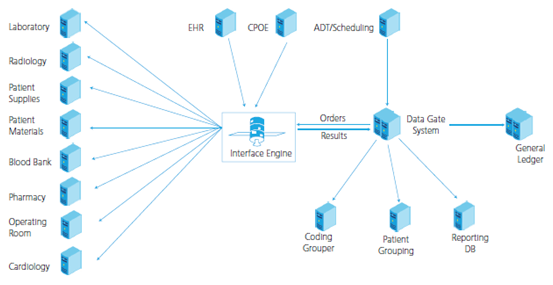[vc_row][vc_column][vc_column_text]ICD-10 codes need to be implemented by the practice management, billing and EHR vendors to ensure a smooth transition and bill reimbursements. One of the major risks in this transition process is having a vendor not prepared in assisting you with updated, tested software. Without proper guidance and a chalked out schedule from the vendor, there is bound to be loss in revenue and productivity during the course of this transition process.
Being just over 6 months away from the roll out date for ICD-10 implementation, each vendor must have an implementation and testing strategy in place.
An effective implementation strategy
 Transition support to be available for ICD-9 and ICD-10 as claims raised prior to Oct 1,2014 will be in ICD-9 whereas those after will be in the ICD-10 coding system. Mapping of ICD-9 codes to ICD-10 will be mandatory for claims processing and for this purpose the Centers for Medicare and Medicaid Services (CMS) have developed a crosswalk framework. The General Equivalence Mappings (GEMs) have been developed in collaboration with industry stakeholders from the payer, hospital and physician sectors and are intended to form the basis for an industry standard crosswalk and mapping tool.
Transition support to be available for ICD-9 and ICD-10 as claims raised prior to Oct 1,2014 will be in ICD-9 whereas those after will be in the ICD-10 coding system. Mapping of ICD-9 codes to ICD-10 will be mandatory for claims processing and for this purpose the Centers for Medicare and Medicaid Services (CMS) have developed a crosswalk framework. The General Equivalence Mappings (GEMs) have been developed in collaboration with industry stakeholders from the payer, hospital and physician sectors and are intended to form the basis for an industry standard crosswalk and mapping tool.
 Migration for ICD-10 implementation will balance industry deadlines, internal business requirements, trading partner readiness and vendor schedules. Grouping the migration activities into a predictable set of manageable releases leverages organizational testing and training resources and helps to minimize operational and financial disruptions.
Migration for ICD-10 implementation will balance industry deadlines, internal business requirements, trading partner readiness and vendor schedules. Grouping the migration activities into a predictable set of manageable releases leverages organizational testing and training resources and helps to minimize operational and financial disruptions.
The migration from IDC-9 to IDC-10 is going to have an impact large or small on all systems. As the change in codes affects the data flow from one system to another, and also how they are going to be passed and populated to respective interfaces.
ICD-10 testing strategy
Testing should be done at each level starting with the project level where all the software requirements are being full filled. Each level can be released and tested while testing each release it would be best to automate the regression to ensure changes have not impacted or disturbed any other functionality of the existing systems. This will provide a well balanced and effective test plan. Another point that needs to be considered is that you might be ready to test but unless the other systems are in place, a successful testing cycle cannot be completed. This will affect overall implementation and roll out timelines.
ICD-10 implementation is not just a simple addition of approximately 124,000 new codes. The code structure itself is being redefined; hence each system processing these codes as either input or output should be tested. This will impact the amount of exhaustive permutations which could be entered along with all the data dependencies which would occur. Apart from the EHR system, there are interactions with external systems such as the finance department, clinical document generation, mapped data, compliances, security validations, etc and each of these systems need to be checked to ensure the codes are read and processed correctly.
Each business scenario to be executed would need to be identified, analyzed and the respective data collected. The scenarios should cover all processes and domains new and old, high risk areas and cross functional relationships apart from the basic validations. Such complex, long and strategic tests will increase the number of test cases exponentially.
When dealing with such large data sets, it becomes all the more important to replicate the testing environment as similar to the live environment with the securities, authorizations, interfaces, the live data feeds. It would also be appropriate to check the changed system in the current environment, and then proceed to check in the new environment. Also, all communications should be detailed and complete to ensure root cause analysis and rectifications. Standardized, clearly defined metrics submitted post testing will help to assess success and failure ratios for the newly implemented systems.[/vc_column_text][/vc_column][/vc_row]